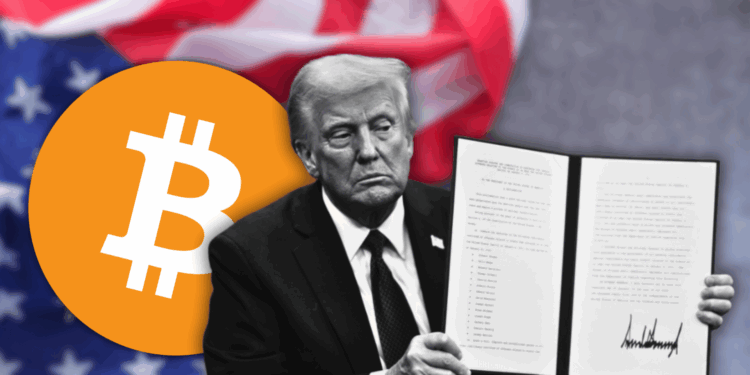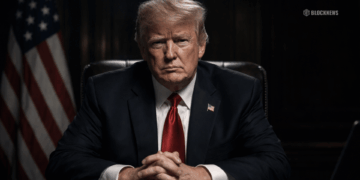- President Trump signed the GENIUS Act, the first U.S. law regulating stablecoins, creating clear standards and enabling growth in the digital dollar space.
- The law passed with bipartisan support after overcoming conservative pushback earlier in the week and includes rules for full collateralization and annual audits.
- It headlines a broader crypto push in Congress, alongside the Clarity Act and Anti-CBDC bill, marking a transformative week for U.S. digital asset policy.
In a major step forward for the crypto industry, President Donald Trump officially signed the GENIUS Act into law on Friday, establishing the first comprehensive U.S. legal framework for stablecoins. The landmark legislation, aimed at regulating the $250 billion stablecoin market, passed the House just a day earlier with broad bipartisan support after overcoming some internal GOP resistance. Stablecoins, which are pegged to assets like the U.S. dollar, are seen as a gateway to safer digital transactions and a more accessible financial future.
During the signing ceremony, Trump praised the law as a milestone for American financial leadership. “We take a giant step to cement American dominance in global finance and crypto technology,” he said, joking that “they named it after me.” His comments emphasized a continued stance against central bank digital currencies (CBDCs), promising once again that no such currency would ever be created under his administration.
A Bill That’s Been Years in the Making
The GENIUS Act, short for Guiding and Establishing National Innovation for US Stablecoins, creates a clear set of rules for how dollar-backed stablecoins should operate. Key requirements include full collateralization with U.S. dollars or high-quality liquid assets, mandatory annual audits for large issuers, and regulatory clarity for foreign-backed stablecoins entering the U.S. market. The goal is to enable safe, transparent usage while empowering U.S.-based innovation.
The crypto industry has lobbied for regulatory clarity for years, pouring millions into lobbying and campaign support. Many top executives from companies like Tether, Gemini, and Robinhood attended the signing at the White House, hailing the bill as a long-overdue win. Trump said the law marks the biggest shift in financial infrastructure since the rise of the internet, positioning the U.S. as the global leader in digital asset technology.
Crypto Week Ends With Three Major Bills Passed
The GENIUS Act headlines a trio of crypto-related bills passed during what lawmakers have dubbed “Crypto Week” in Congress. Alongside GENIUS, the Clarity Act passed with provisions to separate securities and commodities oversight for digital assets—an issue that has long stymied the sector. Also approved was the Anti-CBDC Surveillance State Act, a bill blocking the Federal Reserve from issuing a government-backed digital dollar directly to the public.
The GENIUS Act’s journey to law wasn’t smooth. Earlier this week, over a dozen conservative lawmakers temporarily blocked its progression during a procedural vote. However, a behind-the-scenes compromise allowed the bill to advance, ultimately securing the support of 206 Republicans and 102 Democrats in Thursday’s vote. By Friday, the president had his pen ready.














